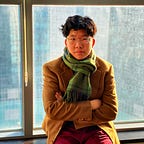Living as a child in Korea just a century ago was tough. While children should have a similar level of respect as adults since they have equal rights as well, the Korean society did not care about this at the time. For instance, many children were hardly even given names and were called ‘this’, ‘that’, and other words that are usually used to refer to things. They would be called like this until late in their adolescence and finally get a name as they enter adulthood. In addition, children were told to work for long hours on the farm or out in the market to sell food. This was because children were viewed more as an investment by parents to help with the family. To modern standards, this is unbelievable but this was how life was like for the Korean kids.
From around the 1920s, voices started to rise that children also need equal rights as adults and need more respect. Hitting children in schools or at home was also criticized by many people since it was inhuman. On top of this new ideology, the various independence movements against the Japanese regime also boosted the idea that children need to be treated in a better way since society developed a theme of gaining equal rights for everyone. Finally, this resulted in possibly one of the most iconic holidays in Korean history: Children’s Day.
Children’s Day was first officially started in 1927. Originally, it was said to be scheduled on the first day of May. However, this was later changed to the 5th of May because May 1st was already the holiday for Labor Day back then. On May 5th, there was a big parade for all the children where they all came out to the streets and paraded together. This was led by Bang Jeong Hwan, who is known as the creator of Children’s Day. Just like Bang Jeong Hwan predicted, Children’s Day became very popular in Korea. Children poured out into the streets and celebrated the rights that they deserved and adults gave presents to children as a symbol of respect.
After Korea was liberated from Japan in 1945, Children’s Day became an official holiday in Korea. On this day, children were not sent to schools and they were taken to places such as amusement parks or restaurants. This day, laws were also established where it was prohibited to look down on children or beat them up just to the fact that they are smaller and weaker than adults.
It is shocking to know that what may seem obvious — children getting their names, not being hit, and getting equal treatment as adults — was not familiar to people just a few decades ago. In this context, we can realize how important Children’s Day is since this day got rid of all the discrimination that children got and elevated their dignity to modern standards.
